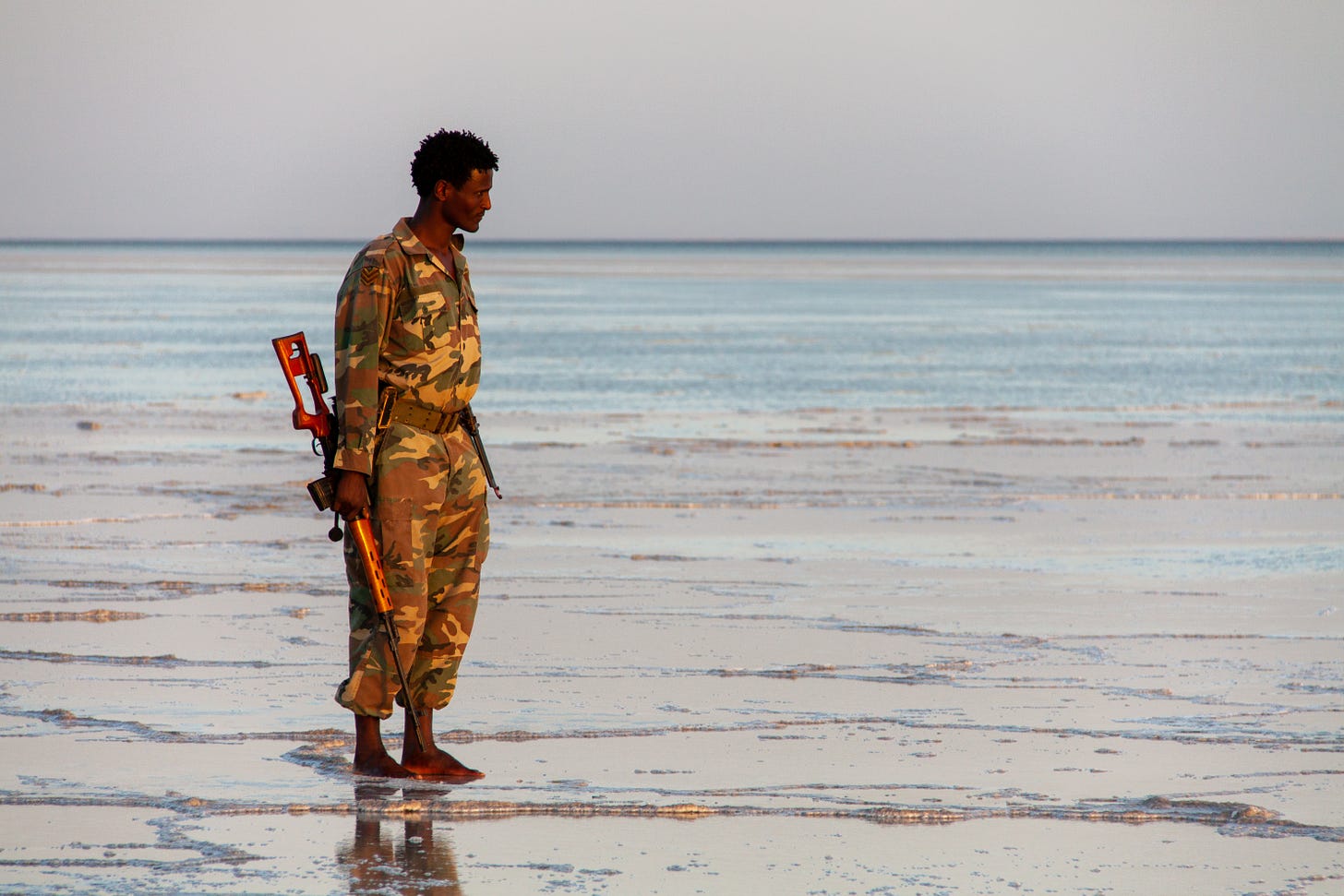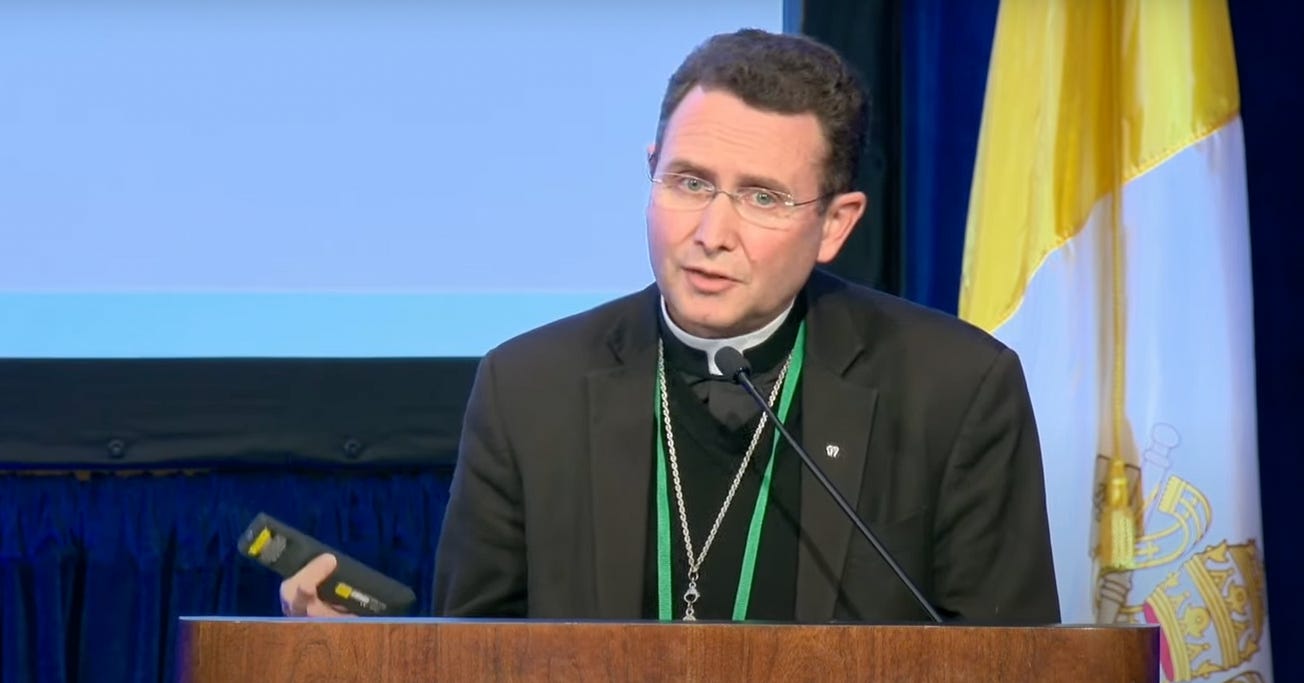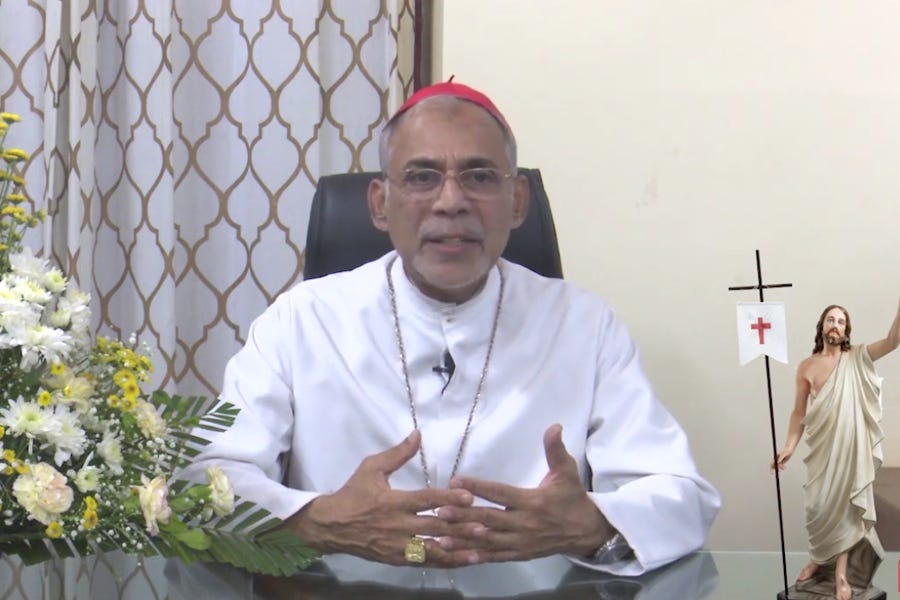Rebel forces in the Tigray region of Ethiopia this week reclaimed the regional capital of Mekelle, after the country’s military abruptly withdrew its forces. The future is far from certain for the region and the country, following eight months of conflict that has led to some 2 million people being displaced, according to U.N. estimates.
The development in Tigray marks the latest wave of uncertainty for a nation that has been plagued in recent years by violence, food insecurity, and natural disasters.
John Shumlansky is the outgoing Catholic Relief Services country representative for Ethiopia, a role in which he has served since 2017. In this capacity, he has supported the CRS team in providing relief and development services, and worked with representatives from the U.N., Ethiopian government, and donor agencies to secure funding.
Shumlansky spoke to The Pillar about his experience in Ethiopia and the unique challenges the country is facing, as well as efforts to help alleviate suffering and promote peace.
The interview is below. It has been edited for clarity.
The Pillar: What is the current situation in Ethiopia? What is CRS focusing on in its work?
Shumlansky: Ethiopia is now reeling from a recent war in the Tigray region that has displaced millions of people and caused widespread food, shelter and healthcare needs. The conflict continues to persist in certain parts of the region, making it difficult at times for humanitarian aid to reach people in great need. CRS and our partners are now distributing U.S. Government-donated food to millions of people in Eastern and Central Tigray. As of [late June], CRS has reached nearly 3 million people with wheat, vegetable oil and yellow split peas with a goal to reach about 4.5 million by early July. CRS and the Catholic Church are also supporting people in Tigray and other areas of the country by providing clean water, repairing waters systems damaged during the war, sending truckloads of medical supplies to Catholic health centers, constructing temporary shelter for displaced families and offering counseling for people who have been impacted by the war.
The Pillar: How has the situation in the country changed compared to a few years ago?
Shumlansky: Ethiopia was making good progress over the years with a noticeable growth in the economy in the capital of Addis Ababa; however, conflicts and natural disasters in multiple locations across the country have made it very difficult for poor and vulnerable families to develop their livelihoods and improve their living conditions. The war in Tigray was a major set-back for the country and we hope the conflict ends soon so that development initiatives can continue to support communities.
The Pillar: The people of Ethiopia have been through a lot. What is the feeling on the ground? Are people hopeful? Are they worn out?
Shumlansky: With a string of conflicts and ethnic tensions over the years, I do think that people are feeling worn out. There is hope in some areas of the country; however, there continues to be a sense of concern and distress over the current situation. Ethiopians in general are a very proud and hopeful people, so there is a feeling of cautious optimism as the country now enters into its national elections.
The Pillar: Are there any memories from the last few years that stand out to you? Things that you've seen? Moments that you've witnessed?
Shumlansky: It was hard for me to visit camps that were established for displaced populations and see how overcrowded they were, and how they lacked suitable shelter, food, medical care and protection for women, girls and small children. However, it was extremely rewarding to return shortly after and see the efforts by CRS and local Church partners who distributed food and water, built homes for families, and linked people with health care. Our team there also worked with local officials, security forces, youth groups, women’s groups and religious leaders to facilitate peacebuilding discussions and efforts to reduce the risk of further conflict.
The Pillar: What have you learned in the last three years that surprised you?
Shumlansky: The capacity and reach of the Catholic Church in Ethiopia is incredible. In every corner of the country, CRS is able to partner with Catholic institutions, Catholic Secretariats, the Missionaries of Charity, Catholic health facilities and Catholic schools to provide assistance to those in need. The Catholic network is really a great advantage for CRS in reaching the most remote areas at any time.
The Pillar: Do you think there is enough international attention on the situation in Ethiopia?
Shumlansky: While there is a great deal of recent publicity about Ethiopia, I’m not sure how much people in other countries understand the situation and the urgent needs of the people, especially in Tigray. Africa in general does not get a lot of international attention while conflicts, food shortages, and natural/man-made disasters are often commonplace in some African countries. There has certainly been coverage of the situation, but fundraising and support for the people of Tigray is limited.
The Pillar: What do you see for the country's future? What are the biggest challenges? Signs of hope?
Shumlansky: Ethiopians will need to resolve conflicts in the country and create lasting peace in order for the country to continue to prosper and grow. There are certainly signs of hope, but there continue to be enormous challenges that must be addressed, including cyclical droughts, floods, food shortages, and persistent conflict across the country and region. The youth in Ethiopia are taking particular notice of the economic and political situation and are becoming more involved in their communities to address concerns. CRS’ youth ambassadors in our peacebuilding activities are great examples of the changes that the youth are making.





